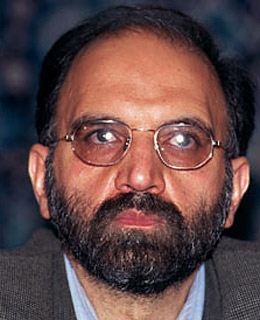
Abdolkarim Soroush is a dangerous man, as far as Iran's ruling mullahs are concerned. A Muslim activist during Ayatullah Khomeini's 1979 revolution against the U.S.-backed Shah, the philosopher, 60, is the leading intellectual force behind the Islamic republic's pro-democracy movement. Drawing from both Western and Islamic sources, Soroush has laid foundations for Islamic pluralism by challenging Khomeini's claim that Iran's mullahs have a God-given right to govern. Soroush counters that because religion is bound to be interpreted by man, it is inevitably open to differing earthly interpretations. Since 9/11, his writings have been central to the global debate over Islam's compatibility with democracy. "Nobody studies modern liberal Islam without studying Soroush," says Roy Mottahedeh, an Islamic-history professor at Harvard University.
Soroush, a devout Muslim born into a working-class Tehran household, has braved constant death threats while authoring books and giving speeches across Iran. He keeps a collection of shirts shredded during attacks on him by pro-regime militants. Soroush, now a visiting scholar at Wissenschaftskolleg in Berlin, is disappointed in Iranian President Mohammed Khatami's failure to deliver on the tremendous mandate for change he was given in the 1997 and 2001 elections. Yet Soroush is not discouraged. "One of the achievements of the reform movement is that people realize that they can be democrats and remain faithful Muslims," he believes. "Democracy is now an established idea."